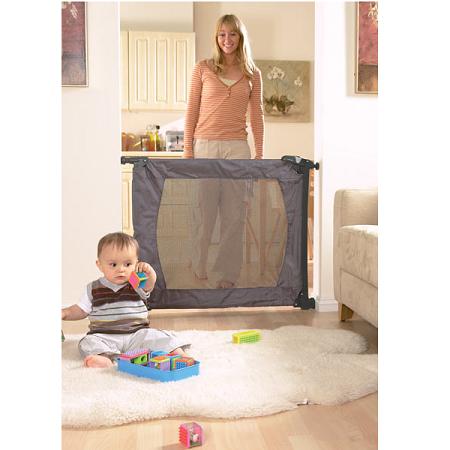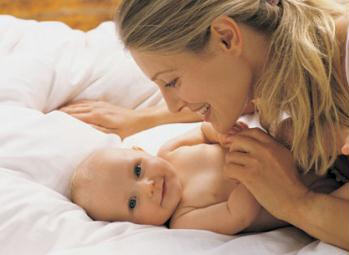
Waiting for first baby arrival in your family is one of most happiest events in life. However, you must prepare well for your baby arrival. Check bellow checklist, Make sure everything in the check list have been prepared!
When you get home from the hospital with your new son or daughter, the last thing that you want is to have to send your partner to the store or to make a mad dash for a thermometer when you fear that your little one is running a fever. So, here are the most basic items that you cannot do without in the first few months of new parenthood:
 Car Seat-Rear-Facing only
Car Seat-Rear-Facing only. You cannot leave the hospital without one! To save money in the long run, you may want to research getting a convertible combination infant/toddler seat. They are expensive up front but prevent you from buying a front-facing seat and then a booster seat as your child grows. The drawback is that by the time your son or daughter is 4 years old and in a booster seat, the seat may look like it's been through a war and impossible to get completely clean.
 Diapers and Wipes
Diapers and Wipes-These are items you can stock up on ahead of time. You can figure on going through 10-12 diapers a day for a newborn, but only buy a month's worth in advance, as babies can quickly outgrow these diapers. Then, also have the next size up on hand so you don't have to run to the store. You might be able to save some money by shopping the sales during your pregnancy. You will never have enough wipes, so stock up on these. You'll be using these until your child is at least 4 or 5. Also buy unscented in the beginning. Many babies are sensitive to the scents used in these products and if your baby develops a rash you want to be able to rule out detergents, fabric softeners etc., before worrying about diapers and wipes. Better safe than sorry.
 Diaper Ointment/Powder
Diaper Ointment/Powder-Your friends are the ones to recommend the products that seem to work best, but you might consider using just plain old cornstarch in a decorative shaker. Cornstarch is non-irritating and absorbs moisture, keeping it away from your baby's skin, which is the whole idea. The number one prevention of diaper rash is frequent diaper changes and thorough cleaning when changing diapers.

Diaper Pail-If using cloth or disposables, you need one of these, along with trash bags to fit the pail.
Crib-This is not a necessity for the first few months, so don't worry if you haven't gotten one yet. Your baby will be much happier in a bassinette, as will you, so that you can keep him or her close for the first month or three, and spend the money on other, more necessary items.
Bassinette or Porta-Crib-When first bringing the baby home, you both will be much more comfortable with a smaller environment. First, your baby is used to being in a small area and the spaciousness of a crib might not be appreciated at this age. Secondly, it is much easier to get your newborn in and out of a porta-crib or bassinette. And thirdly, you will want your little one close as you get accustomed to his or her sleeping habits, cries, whimpers and just to be able to wake up, check on your son or daughter, and go back to sleep if he or she is sleeping soundly. Ever hear stories about grandma spending her first three months in a dresser drawer or a sturdy cardboard box? These are the least expensive options and may be better than a crib to begin with.
Stroller-You need one that reclines fully until your baby is old enough to support his or her head. A lot of people are tempted to get the umbrella-type stroller because they are cheap and so lightweight and convenient. You might want to re-think this. When you are traveling anywhere with your baby, until they are out of diapers and eating regular food, you will be carrying a lot of stuff with you. With a regular-sized stroller you have plenty of room to put the diaper bag and toys and shopping bags and even stack on some stuff for older siblings and still have plenty of room for the baby, without worrying about the whole thing toppling over. Your baby will also sleep much better in a reclining stroller than in an umbrella-type. And what about posture? Umbrella strollers provide little support for your baby's developing spine. Consider buying a combination infant seat and stroller. They are well worth the money and make taking the baby from the car to the stroller a breeze, barely disturbing them at all. These also convert to a regular stroller once your baby is out of the infant seat and/or sitting up on their own.
A Baby Sling-Be careful with this choice and know how to use it properly. Recent studies, and unfortunately, infant deaths, have resulted in more stringent warnings to parents, though the safety of these slings is still being debated. Basically, be sure when your baby is in a sling that his or her nose and mouth are not pressed against the fabric and that your baby's chin is not resting on his chest, restricting the airway.
A Nursing Pillow, Nursing Bras, Bra Pads, Breast Pump, and Milk Storage Bags-Of course this depends upon your decision to nurse or not to. This is a purely personal choice. Don't let anyone make you feel less of a Mom for choosing not to. Today's formulas offer everything that a child needs to grow and develop, though it does not offer the antibodies that your baby will receive in the first few days prior to your milk coming in completely.
Nursing Cream-This will help to keep your nipples in good shape. Babies can be hard on nursing mothers, so you want to do everything possible to avoid being sore and being able to provide your little one with nature's perfect nutrients, at least for the first few days, weeks or months.
4-oz Bottles-Your baby won't need full-sized bottles to begin with and these are handy for water now and juices later on, even if you are breastfeeding to begin with. Bottles are handy to have in a pinch too. If you were to get sick and unable to nurse, a bottle is a necessity.
Formula-Don't stock up on this all at once. If you are breastfeeding, you will only need this in a pinch. If you are bottle-feeding, you want to be sure that your baby can handle the type of formula that you choose. Hospitals often send new Mom's home with a baby care package sponsored by companies that want you to buy their products, so you might check and find out ahead of time. You will not be allowed to return formula to the store, unopened or not, so make sure your baby's tummy is happy with a particular formula before stocking the pantry.
Bottle and Nipple Brushes or special Dishwasher Racks for Bottles and Nipples.
Burp Rags-The best thing to use to put over your shoulder are cloth diapers. They are absorbent, fairly inexpensive, last a long time, and are small enough to fit in a purse, but you can also buy cloths designed for just this purpose. These get used often and get dirty just as often. You should have a couple of dozen of these on hand!
Pacifier-Baby's have a natural instinct for suckling and a pacifier will satisfy that, often soothing an infant when nothing else will. Some babies like them and some don't and some infants are quite picky about what kind they will use. Have a couple of varieties on hand until you know what your baby prefers.
Receiving Blankets-You cannot have enough of these! Spitting up, peeing and pooping are a way of life with your baby and everything ends up on the receiving blanket. New babies are also much more comfortable when snuggled, similar to how they are in the womb, so take note of how the hospital wraps your little one and do the same. Some people also use these as burp rags, though they are larger than necessary for that purpose.
Crib Sheets-You can't have enough of these either! You don't want to run out of sheets and you also don't want to be tied to your washing machine!
Layette Pads-These are leak-resistant pads that you can use to put under your baby to keep you from having to change the crib sheets as often. They are usually flannel or soft heavy fabric on top of a rubber backing. These will work until your baby is able to roll over. 4-6 should allow you to change them out and wash as necessary.
Bibs-Only little bibs are needed at first. These serve to catch drips from the bottle and small amounts of spit up, keeping your baby's outfits fresher longer. 6-12 should be enough.
One Piece Underwear-These are the most common new baby attire. They usually have a snap crotch that makes diaper changes easy and they come in a variety of weights. Your little one can go through 6 outfits a day. Plan on having at least a dozen of these on hand.
One-piece Pajamas-One piece sleepers usually include feet so negate the need for booties when they have one of these on. Soft and easy to change are the most important aspects, and then take into consideration the time of year and the indoor temperatures that your little one will be exposed to. These are quite often more fashionable and Mom's in-the-know use these to take baby out in public. Yes, it's tempting to dress those babies up, but much more practical and comfortable for them to keep them in sleepers. Have a dozen of these on hand too.
Booties or Socks-Babies do not have good temperature control and therefore can have cold feet, regardless of the temperature outside or inside. You should always have socks or booties on when leaving the house and some people believe that keeping your baby's feet warm will cut down on the incidents of colic. In the winter you can even put booties on over the top of one-piece pajamas. And booties are much more comfortable and inexpensive than shoes. Your baby's feet will grow as quickly as he or she does, so buying shoes, except for special occasions or pictures, can be expensive and unnecessary. They can also be near impossible to keep on their feet during the first few months. Booties also get lost easily as they fall off in transit and are small enough to disappear. Have at least a dozen pairs of booties or socks on hand.
Hats-Baby's head gets cold. That is why they keep hats on them in the hospital. Until your baby can learn to regulate their own temperature, usually around 3-4 months of age, keep a few soft, knit beanies around.
Mittens-These are the little cotton mittens that you use to keep your baby from scratching his or her face. Baby's nails grow pretty quickly; some even needing a nail trim upon birth. Some babies have even scratched their face in the womb. For the first few weeks you may want to keep mittens on, until you get the hang of regular nail trimming.
Fingernail Trimmers-These will often come in a grooming kit or you can buy them separately. You need tiny nail trimmers to do those itty-bitty fingers, not an adult nail trimmer.
Baby Brush-Your baby's scalp is very tender and he or she has a 'soft-spot' on the top of their head where the skull has not fused together. You should only use a very soft brush on your baby's hair up to at least 1 year of age.
Thermometer-You can go with the old fashioned rectal thermometer, but these contain mercury, which is dangerous, and they are very fragile. A digital thermometer gives the most accurate reading while being the easiest to use and will usually give you results in just a few seconds. Infants require either a rectal or under the arm reading as they cannot hold a thermometer in their mouth. Tympanic (ear) thermometers are available, but then you can only use it in the ear and they can be difficult to get in just the right place. Pacifier thermometers read low, so add 1/2 a degree and they require your child keep the pacifier in place for 3 minutes. The temperature-sensitive strips are not very accurate but will do in a pinch.
Stock your Medicine Chest-You should have either Tylenol or Motrin on hand for fever and pain relief. Your little one can run a temperature for any number of reasons and the first thing the doctor will do is recommend one of the above. If your baby's temperature goes down and stays down, chances are that's all that needs to be done. On the other hand, if one of these will not bring the temperature down or it persists above 100°F, then call the pediatrician. Also have on hand medicine for gas, as that is what usually causes your baby pain or discomfort when new born and there are products on the market specifically for infants. You also need to have alcohol and gauze for cleaning your baby's umbilical stub. A cotton ball tends to shred and is hard to get off.
Nasal Aspirator-the hospital may send one of these home with your baby, so you may not need to buy one, but it also doesn't hurt to have an extra on hand or in the diaper bag and they are not expensive. Your little one cannot blow his or her nose and continually wiping a running nose is hard on the nose. Babies tend to have quite a bit of mucous, especially when suffering from a cold or allergy, so a nasal aspirator is the easiest for you and your baby. When your child can breathe easier, feeding and sleeping will also be easier.
Baby Tub, Wash Cloths, Hooded Towels, Baby Wash-The easiest way for both of you is to use a baby tub or the kitchen sink with a non-slip mat in the bottom. Soap is slippery and you want to be able to have a comfortable but firm grip on your baby at all times, and having their little butt sliding around in the sink or tub does not help. Wash cloths should be soft as your baby's skin is quite sensitive and the hooded towel will help your son or daughter when it comes to regulating their temperature after a bath. Baby washes are commercially available that will do both hair and body, therefore only having to buy one product and they are proven safe for your baby's sensitive skin and eyes.
Sanitary Pads-For the first few weeks home you will be spotting and may have vaginal discharge. You cannot wear a tampon for fear of infection right now, so pads may be a necessity. You shouldn't need the super-duper ones and a heavy panty-liner may be sufficient, but have something on hand.
Baby Monitor-Some people swear by these and some don't. If your baby will be in a room by him or herself as soon as you get home, then a baby monitor is a good idea. It enables you to monitor your baby, even while you sleep, and hear the slightest noise. It keeps you from constantly running down the hall to check and lessens the stress of not having your baby in the room with you.
Nightlight-It is always a good idea to have a small insubstantial light so that you can easily check on your baby. Your baby doesn't like bright light in his or her eyes anymore than you do, especially upon waking.
Window Coverings-Depending upon where your baby's room is located, you may want room-darkening window coverings. Remember that your baby has been in the relatively dark womb for 9 months and that getting used to having regular light can take some time. Darkness will often coincide with your infant's sleep patterns and can help to regulate those waking and sleeping hours.
Music for the Nursery-It's been well proven that babies like music. You can get a wind up mobile, but be aware that they don't attach well to bassinettes, besides being in the way, and that your baby cannot see a mobile clearly when it is that far above the crib, at least not at first. Instead consider a CD player that you can use in other rooms when you feel your baby has outgrown music, or with which you can upgrade the music your baby hears.
Rocking Chair-The ultimate 'Mommy' picture is sitting in a rocker and rocking your baby. Yes, it's relaxing for both of you and can be a great tool on sleepless nights, but beware of getting your little one in the habit of being rocked to sleep. This can carry well into toddlerhood if you're not careful. But, a rocker is a great place to breast feed and to have some good quality cuddle time with your baby. Use it sparingly and to your best advantage, maybe positioning it with a favorite view or with your favorite soothing-scented candles or potpourri nearby.
Books-If you haven't already started reading to your baby, it is never too early or too late to start. Start collecting those books that your Mom read to you, or ask your Mom if she's got them stashed away somewhere. Reading to your child is a sure way to interest your child in reading, to teach him, even at this early age, and to soothe her with the sound of your voice.
Changing Table-This makes diaper changing easier and helps to organize the supplies, but is not an absolute necessity. You can change your baby on the couch or on the bed just as easily. Just find a place that's convenient and set up shop, keeping diapers, wipes and ointment or powder at your fingertips.
If this is your first child, then there is nothing that can prepare you for the intense pleasure, or for the worries and stress that are associated with being a parent. It is important that these first few weeks and months are as stress-free and easy-going as possible; being prepared for your little one's arrival is a great start! Use this list as a guide to help you prepare or have it handy for reference when registering your wants and needs for your baby shower.
Reference:
[1]
Joseph Stutzman, http://EzineArticles.com/?expert=Joseph_Stutzman
 Baby safety is one thing that most parents worry about, either in their homes, in cars, in parks or other places. Most babies start crawling or climbing more prone to accidents. It has been proven that babies in the age group 1 to 4 while they learn to crawl, climb, stand, walk more prone to accidents resulting from fire, drowning, choking, falls, poisoning, etc. This is mainly because the experimental stage and learn that your baby into in during that phase. Baby safety must therefore be taken as the primary measure in all aspects of your life and surroundings.
Baby safety is one thing that most parents worry about, either in their homes, in cars, in parks or other places. Most babies start crawling or climbing more prone to accidents. It has been proven that babies in the age group 1 to 4 while they learn to crawl, climb, stand, walk more prone to accidents resulting from fire, drowning, choking, falls, poisoning, etc. This is mainly because the experimental stage and learn that your baby into in during that phase. Baby safety must therefore be taken as the primary measure in all aspects of your life and surroundings.

 Parenting does not lack a great responsibility, perhaps the biggest responsibility you will ever have in your entire life. This is why planning for a new baby is very important to get a good start to live together with your baby.
Parenting does not lack a great responsibility, perhaps the biggest responsibility you will ever have in your entire life. This is why planning for a new baby is very important to get a good start to live together with your baby. Many people believe that parenting adolescents is the most challenging because of the problems facing many young people during critical periods of your teenage life. This is the time in your child's life when they try to forge their own identity, but they still rely on you to some basic aspects of life. The years of adolescence is the period of confusion, confidence is damaged and repaired, fluid relationships, and low self-awareness. Parents need specific expertise for many years to deal with adolescent issues. Below is a glimpse of the problem may be that your teen as a parent can face:
Many people believe that parenting adolescents is the most challenging because of the problems facing many young people during critical periods of your teenage life. This is the time in your child's life when they try to forge their own identity, but they still rely on you to some basic aspects of life. The years of adolescence is the period of confusion, confidence is damaged and repaired, fluid relationships, and low self-awareness. Parents need specific expertise for many years to deal with adolescent issues. Below is a glimpse of the problem may be that your teen as a parent can face: presents the state of contemporary society that can encourage stress for teens. One potential stress heads are often found in the home: parents.
presents the state of contemporary society that can encourage stress for teens. One potential stress heads are often found in the home: parents. We've heard a tip that another parent. Each end of the parent can focus on one aspect of parenting. Tips parents can about raising a toddler, a, a gifted child or adolescent children is difficult. But there is one other type of child that parents should know the tips relevant parent-child of divorced parents. What tip of divorced parents can employ parents to ensure that their children would be okay?
We've heard a tip that another parent. Each end of the parent can focus on one aspect of parenting. Tips parents can about raising a toddler, a, a gifted child or adolescent children is difficult. But there is one other type of child that parents should know the tips relevant parent-child of divorced parents. What tip of divorced parents can employ parents to ensure that their children would be okay? As we all know and regret deeply, kids aren't born with instruction manuals informing us of the intricacies of how they work. As parents, our only option is to learn as we go. When our kids were babies, we learned to nap when they napped, to put valuables up on the high shelves, and that m&ms make excellent bribing tools when potty training. But now that your baby is no longer a baby (although he still may act that way from time to time), there is a whole new set of instructions to learn.
As we all know and regret deeply, kids aren't born with instruction manuals informing us of the intricacies of how they work. As parents, our only option is to learn as we go. When our kids were babies, we learned to nap when they napped, to put valuables up on the high shelves, and that m&ms make excellent bribing tools when potty training. But now that your baby is no longer a baby (although he still may act that way from time to time), there is a whole new set of instructions to learn. Currently, one and the only question in the minds of all people is "where is the young generation is gone?" As the lifestyle and values that interfere with young people to say the least. Despite the problems created by the youth and the problems faced by those innumerable, it is of no concern to the state youth are causing anxiety. Baby on the way into this world, newborns and children in various stages of growth are also the face and cause problems.
Currently, one and the only question in the minds of all people is "where is the young generation is gone?" As the lifestyle and values that interfere with young people to say the least. Despite the problems created by the youth and the problems faced by those innumerable, it is of no concern to the state youth are causing anxiety. Baby on the way into this world, newborns and children in various stages of growth are also the face and cause problems. This article reveals 5 Big Fat Lies to Being a Perfect Parent.
This article reveals 5 Big Fat Lies to Being a Perfect Parent. Many parents As a counselor, I have seen myself running ragged trying to be "The Perfect Parent" for their teenagers. When their efforts failed and the relationship with their adolescent children are lacking, many parents may feel frustrated and disappointed. Here are some myth busters how to be a Perfect Parent.
Many parents As a counselor, I have seen myself running ragged trying to be "The Perfect Parent" for their teenagers. When their efforts failed and the relationship with their adolescent children are lacking, many parents may feel frustrated and disappointed. Here are some myth busters how to be a Perfect Parent.


 Waiting for first baby arrival in your family is one of most happiest events in life. However, you must prepare well for your baby arrival. Check bellow checklist, Make sure everything in the check list have been prepared!
Waiting for first baby arrival in your family is one of most happiest events in life. However, you must prepare well for your baby arrival. Check bellow checklist, Make sure everything in the check list have been prepared!













 A highly relevant question that many first time parents may be asked is - What can be classified as normal behavior for children?
A highly relevant question that many first time parents may be asked is - What can be classified as normal behavior for children?







